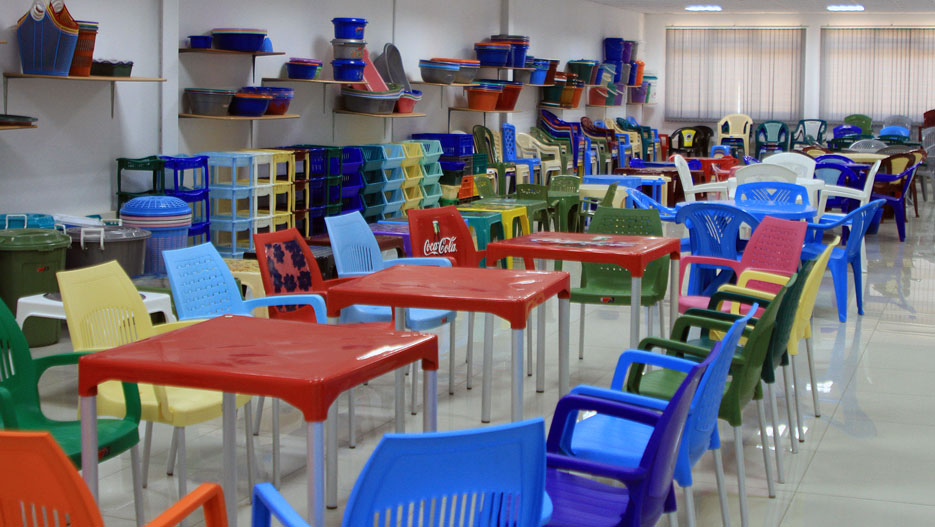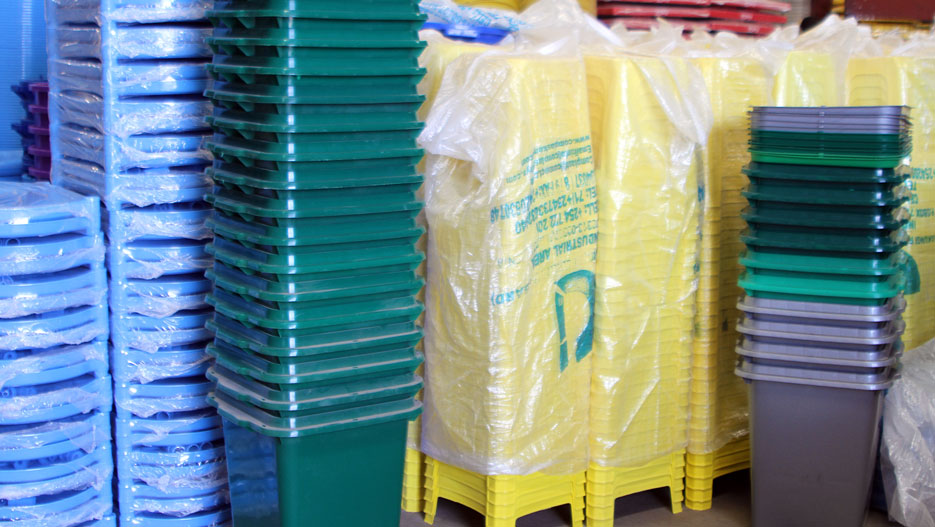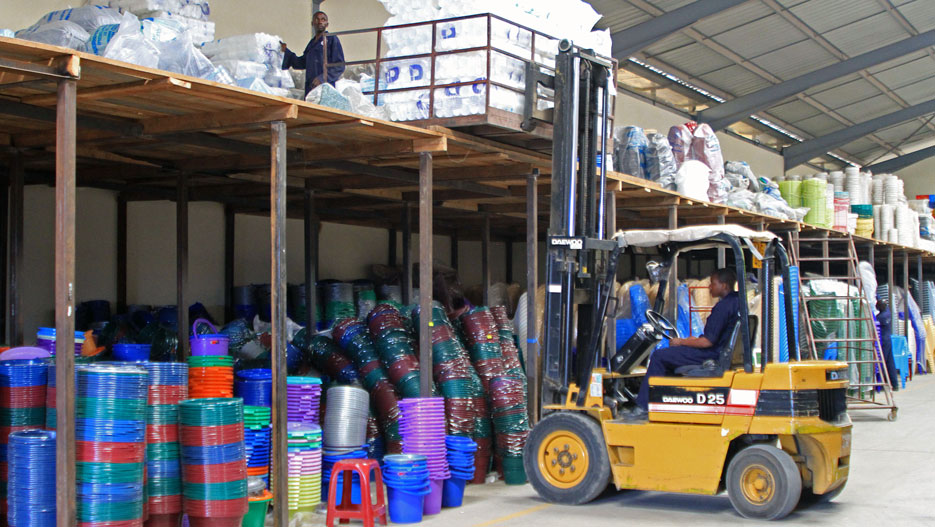Complast Industries to Remain a Leading Plastics Manufacturing Company in Kenya
Shabbir Hamza Noormohamed gives his assessment of the plastics sector in Kenya. He also talks about Complast’s main products, challenges to be faced, CSR, expansion plans and shares his vision for the future.
Interview with Shabbir Hamza Noormohamed, Business Development Manager at Complast Industries
What is your assessment of the plastics sector in Kenya at the moment?
The plastics sector today is dominated by over 70 companies. They mold plastic in different forms including injection molding, extrusion and rotomolding, to provide solutions to a number of industries, NGOs, schools, hospitals, commercial enterprises, horticulture industries, retail and distribution, as well as governments. Complast is the leading company in plastic furniture manufacturing. We produce an average of 40,000 metrics tons of plastic every month. Plastic has evolved greatly in recent years. The 20th century belonged to the Space Age, dot-com, and most of all, the internet. But the 21st century is the plastics century. Besides, the aspect of recycling is very important and it has been on the fast track lately.
What types of products does your company offer?
We have plastic tables and chairs which we brand to the specifications of multinational companies. We work closely with the top beverage companies in the world including Coca Cola, SABMiller and Heineken.
Is Complast Industries involved in CSR activities?
Our philosophy of always putting the customer first and the belief that the customer is king is our main selling point. We cannot go wrong when the customer is with us.
Complast has been advocating for CSR to become a law here in Kenya. We are in collaboration with our local members of parliament to have companies give 2% of their total profits as CSR. Complast also advocates for and participates in enriching the lives of the “beach boys” in Watamu. We sponsor a triathlon that 60% of community members participate in, which enhances and improves their lifestyle. Complast has recently supported a women’s group that was being exploited through sexual harassment by trucks that were passing through in Taita-Taveta County. Complast helped this women’s group to become independent and self-sufficient. We also help to educate children and we are currently sponsoring children of our own staff. We also help to provide furniture and household cutlery for schools in slum grade areas, such as the Lunga Lunga Slums.

What are the main challenges of the plastics sector in Kenya at the moment? What are your own company’s challenges on a daily basis? What do you do to overcome those challenges?
One of the main challenges we currently face in Kenya is that we have very weak copyright laws. We have products that we have developed ourselves and our competitors just come and take those products, modify them with a small size adjustment, and then register products very similar to ours with very little description variation. Another challenge we have is cheap imports coming from China, which has adversely affected our local sales. In addition, there is a particular law called the VAT law here in Kenya. It can take up to two years before funds are reimbursed to the company, which increases our cost of operations because we have to operate by borrowing money from the bank to finance our working capital. To overcome these challenges, we try to keep the best possible relationship with our customers. We have advocated for a philosophy where once we acquire our customers, we make sure we keep them forever. It is not easy, but nonetheless, it is not very difficult.
Complast caters not only to the Kenyan market, but also East and Central Africa. How would you define your strategy in terms of expansion plans, and do you plan on opening operations in new countries in the near future?
Complast exports not only to East Africa and COMESA, but we also go beyond COMESA borders. We export plastics as far south as South Africa, as far east as Congo and north to Egypt and Europe. When Africa was experiencing post-election violence a few years ago, we had a project called Red Cup where we exported cups to Rome, Washington DC, and Atlanta. Complast is not restricted to East and Central Africa, we are a global business. We currently export to eight countries. About 50 percent of our production centers on exports. We have customers already supporting us in the form of distributorship in the 47 counties of Kenya and other African countries including Tanzania, Congo, Sudan, Uganda and more. Opening new branches is something that we are quite open to and we welcome any expansion plan that would support our growth.

Are you interested in finding new partners and investors?
Complast is a family owned company and the prospect of growth with new partners is not a limitation but a possibility. Going forward, we are very open to new partnerships.
What would be your message to potential partners? Why should they consider possible business with you?
Our philosophy of always putting the customer first and the belief that the customer is king is our main selling point. We cannot go wrong when the customer is with us.
In the next five years, do you foresee any major change in the plastics industry in Kenya?
There are many products that the Kenyan plastics sector does not currently manufacture, but that are manufactured globally. Some of these include motor vehicle assembly parts and electrical conduits. We have an increased development in real estate in Kenya. We are interested in producing plastic doors and windows using the same technology that is being implemented worldwide, but is not available in Kenya, yet. Manufacturing these new products should be possible here in the next one to two years. We are currently in talks with a German company whose name I cannot disclose, but this is our next step.
Are there any other major plans for the near future?
Complast has moved from a very small domain of a rented premises of only half an acre to our current location of over two acres. That symbolizes our focus for tomorrow. We are looking forward to our growth which our current trajectory supports.

Why should people consider Kenya as a possible business or investment destination instead of other countries in East Africa?
Today, Kenya is the fourth biggest economy in Africa after Nigeria, South Africa and Angola. The most recent Foreign Direct Investment figures show that Kenya was the second biggest beneficiary of FDI investment in the last year. Currently, we are very focused on our infrastructure development. There is a standard gauge railway being built, renewable energy is in high gear and costs are going down. We have good dollar against shilling stabilization. Kenya is definitely the best strategically placed country in Africa. We are at the center of Africa. Kenyans are very bright and the human resource here is the best available.
What is your vision for the future of Complast?
Complast is a company that enhances innovation, and that is what drives us. The 21st century will belong to the plastics industry sector, and we look forward to a very promising future. Complast has a comparative advantage of not only being very good with its customers, but we also have a very good relationship with our workers. Some of our workers have been with us since the day we started this company. We have been like a family. At Complast, our staff turnover is literally zero. This is our biggest strength. We look forward to developing that strength and showing to the world that we are not only about profits, but also our staff. It is the human resource that moves the company.